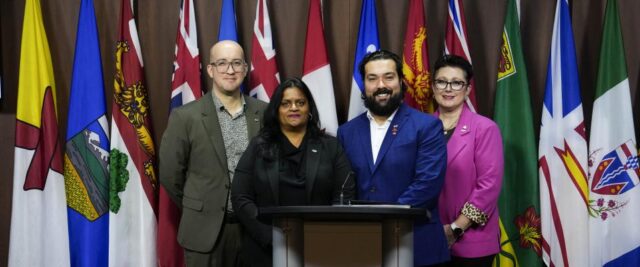Budget 2025 hints at pension cut for federal workers
PSAC is concerned the federal government may be preparing to claw back the hard-earned retirement benefits federal public service workers rely on.
Under the “Equitable Public Sector Retirement Benefits” section of the 2025 budget, the government suggests that federal public service workers are “overcontributing” to their federal pension plans and the Canada or Quebec Pension Plans (CPP/QPP). The government aims to correct the issue, promising this will save money both for the government and federal workers.
But this language hints that they plan to reduce pension plan benefits for workers to compensate for recent changes to CPP and QPP. Any proposal that reduces the value of members’ pensions – while framing it as a cost saving for workers – is unacceptable.
The federal government has already betrayed the trust of workers who contribute to the Public Service Pension Plan. Last year, the Liberal government raided $1.9 billion from pension plan, transferring the funds into the government’s own coffers. That decision directly undermined the retirement security of federal public service workers and set a dangerous precedent for treating the pension plan as a government piggy bank.
Combined with massive job cuts and sweeping changes to federal labour legislation included in this budget, the pension change is yet another red flag about how this government intends to treat its workers. PSAC will fight any attempt to undermine workers’ rights — including any move that threatens the financial security of our members in retirement.
Pensions are a core part of our members’ compensation – paid for and earned over a lifetime of service. Any change to pension benefits must be transparent, and should be brought to the unions at the bargaining table – not slipped into the budget as an accounting exercise.
Prime Minister Carney’s government still has an opportunity to show leadership by protecting and strengthening the pensions workers depend on – not weakening them.
PSAC is seeking immediate clarification from the federal government on the intent and impact of the pension language in Budget 2025. We will update members as soon as more information becomes available.
This article was first published on the PSAC website.








